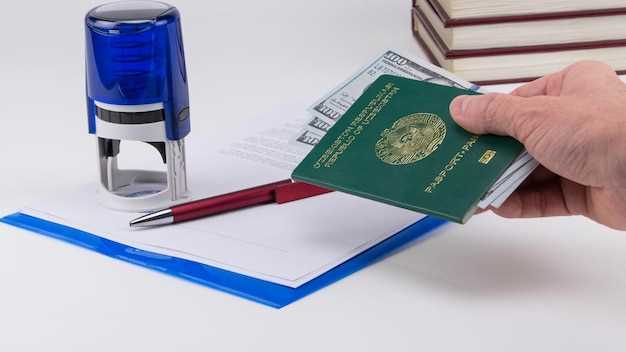
Acquiring legal status in a foreign country is a vital step for anyone planning to stay long-term in a different nation. The United Arab Emirates offers a variety of residency options for expatriates looking to make the country their home. Understanding the process and requirements for obtaining a residency permit is essential for those looking to establish a legal presence in the UAE.
Exploring the various types of residency permits available in the UAE is crucial for individuals seeking to reside in the country. Each type of permit has its own set of requirements and benefits, making it important to choose the right option based on individual circumstances. From employment visas to family sponsorship permits, the UAE offers a range of residency options to suit different needs and situations.
Requirements for Obtaining Residency in the United Arab Emirates
In order to establish legal residency in the United Arab Emirates, there are certain criteria that must be met by individuals seeking a residency visa. These requirements serve as a foundation for the application process and are essential for obtaining permission to reside in the UAE.
Financial Stability

One of the key requirements for obtaining a residency visa in the UAE is demonstrating financial stability. This can be showcased through proof of a steady income, a valid employment contract, or ownership of a business in the country. Financial stability is crucial in ensuring that individuals can support themselves during their stay in the UAE.
Medical Examination
Another important requirement for obtaining a UAE residency visa is undergoing a medical examination. This examination is conducted to ensure that individuals do not have any contagious diseases that could pose a risk to public health. It is mandatory for all applicants to pass this examination in order to be eligible for residency in the UAE.
Documents required for obtaining a residency permit in the United Arab Emirates
When applying for a residency permit in the UAE, there are several essential documents that you must provide as part of your application. These documents are crucial in proving your eligibility and ensuring a smooth process for obtaining your residency in the country.
1. Valid Passport
Your passport is a fundamental document that you must have to apply for a residency permit in the UAE. Make sure that your passport is valid for at least six months from the date of your application and has blank pages for visa stamps.
2. Passport-sized Photographs
You will need to provide recent passport-sized photographs as part of your residency permit application. It is essential to ensure that these photographs meet the UAE’s specific requirements for size, background color, and other specifications.
Types of UAE Residence Visas Available

In the United Arab Emirates, there are several different categories of visas that allow individuals to live and work in the country. Each type of visa has its own specific requirements and benefits. Here is an overview of some of the most common types of UAE residence visas available:
Employment Visa
- This type of visa is issued to individuals who have secured a job in the UAE and is sponsored by their employer. It allows them to live and work in the country for a specific period of time.
- Employment visas are typically valid for two to three years and can be renewed as long as the individual remains employed by the sponsoring company.
Investor Visa
- Investor visas are granted to individuals who have made a significant investment in a business in the UAE. This type of visa allows them to reside in the country and oversee their investment.
- Investor visas are usually valid for multiple years and can be renewed as long as the investment is maintained.
These are just a few examples of the types of UAE residence visas available. It is important to research the specific requirements and benefits of each visa category to determine which one is right for you. For more information on UAE residence visas, visit uae residence visa.
Differences between Long-term and Short-term Visas
When considering residency options in the United Arab Emirates, it is important to understand the distinctions between long-term and short-term visas. Each type of visa comes with its own set of requirements, benefits, and limitations, making it crucial for individuals to choose the right option based on their specific circumstances.
- Duration: Long-term visas typically allow individuals to stay in the UAE for a longer period, often ranging from one to ten years, depending on the visa category. In contrast, short-term visas are usually valid for a shorter duration, such as 30 days or 90 days, with the possibility of extension.
- Eligibility: Long-term visas are usually granted to individuals who meet specific criteria, such as investors, entrepreneurs, professionals, or retirees, and require substantial financial investment. On the other hand, short-term visas are more commonly used for tourism, business visits, or short-term work assignments.
- Benefits: Long-term visas provide holders with more stability and convenience, allowing them to reside in the UAE for an extended period without the need for frequent visa renewals. Additionally, long-term visa holders may be eligible for additional perks, such as access to healthcare, education, and social services. Short-term visas, on the other hand, are suitable for temporary stays and may be more cost-effective for short-term visitors.
- Restrictions: Long-term visa holders are expected to comply with specific residency regulations, such as maintaining a valid visa status, abiding by local laws, and fulfilling any visa requirements. In contrast, short-term visa holders must adhere to the conditions of their visa, such as respecting the duration of stay and refraining from engaging in prohibited activities.
Ultimately, the choice between a long-term and short-term visa in the UAE will depend on factors such as the individual’s purpose of stay, financial capacity, and long-term plans. By understanding the differences between these visa types, individuals can make informed decisions that align with their residency goals in the UAE.
Benefits of Having a UAE Residency Permit
Living in the United Arab Emirates on a permanent basis offers a multitude of advantages and privileges. From access to top-notch healthcare facilities and educational institutions to tax-free income and a safe environment, the benefits of holding a UAE residency permit are abundant and diverse.
Enhanced Business Opportunities

One of the key benefits of having a UAE residency permit is the ability to start and operate a business in the country without the need for a local sponsor. This opens up a world of opportunities for entrepreneurs and business owners looking to tap into the thriving UAE market.
Access to High-Quality Healthcare
Residents of the UAE enjoy access to world-class healthcare facilities and services, ensuring that they receive top-notch medical care when needed. With state-of-the-art hospitals and clinics, residents can rest assured that their healthcare needs will be met with the utmost professionalism and care.
























+ There are no comments
Add yours